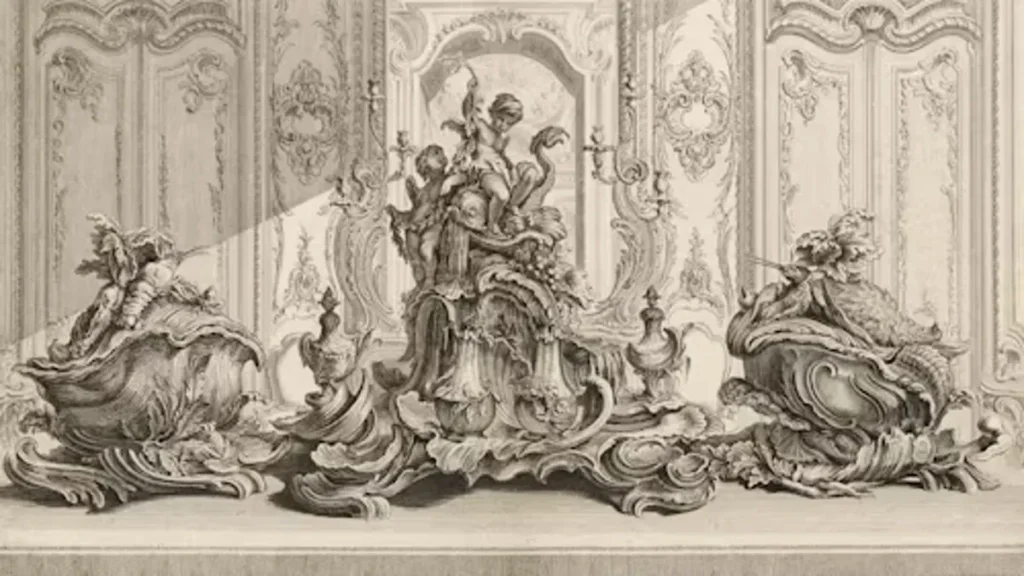The term Padişahbet carries a resonance that merges history, intellect, and social engagement, invoking an atmosphere of thoughtful exchange and royal discourse. Within the first few moments of hearing the word, one senses both authority and dialogue — a linguistic blend of padişah (meaning “sultan” or “sovereign”) and sohbet (meaning “conversation” or “gathering for discussion”). Essentially, Padişahbet reflects a confluence between power and reflection: a metaphorical meeting place for thoughtful debate, communal understanding, and shared insight. For searchers curious about what Padişahbet represents today, the answer lies in its transformation from ancient intellectual sessions to a modern emblem of informed, responsible communication that transcends time, geography, and social structure. It is not merely a term; it symbolizes a living culture of exchange rooted in respect, curiosity, and balance between tradition and innovation.
As societies evolve, so do the ways they converse, learn, and lead. Padişahbet stands as an example of how dialogue—once reserved for royal courts—has now become democratized through digital connectivity, reshaping how knowledge and wisdom circulate among people. In understanding Padişahbet, we trace humanity’s desire for wisdom, discourse, and collective growth through the centuries, now reinterpreted in the digital era as a mark of informed, ethical communication.
Origins of Padişahbet: A Glimpse into Historical Discourse
Historically, the Ottoman world thrived on structured conversations where intellect met authority. Padişahbet referred to assemblies where scholars, poets, and advisors shared ideas with the Sultan, often blending philosophy, literature, and governance into a single stream of thought. These conversations were not casual chatter—they were orchestrated dialogues designed to refine decisions and expand perspectives. The Sultan’s court became a cultural nucleus, reflecting the empire’s values: discipline, intelligence, and mutual respect.
Such gatherings functioned as early forms of think tanks. In the absence of universities accessible to the public, Padişahbet served as an informal university of governance. A quote from a 17th-century Ottoman chronicler encapsulates the idea beautifully:
“The Padişah listens not for agreement, but for wisdom that refines the realm.”
This practice inspired later councils and academies that institutionalized discussion as a means of intellectual and political growth. Today, while the empire is long gone, its conversational legacy persists in modern platforms that encourage critical dialogue rather than shallow opinion.
The Philosophy Behind Padişahbet
At its heart, Padişahbet embodies three timeless principles: wisdom through listening, respect through speech, and unity through knowledge. The philosophical core of this practice lies not in dominance but in humility. The “sohbet” half of the term emphasizes exchange—listening as much as speaking—while the “padişah” half suggests stewardship and responsibility. Together, they symbolize leadership grounded in empathy and understanding.
This concept reflects a broader cultural truth: that societies progress when those in power value the wisdom of their communities. The Ottoman thinkers considered dialogue an act of governance, a form of shared reasoning that shaped moral and political outcomes. In a contemporary sense, Padişahbet invites reflection on how leaders, educators, and citizens today can reclaim thoughtful communication in an age of digital noise and polarization.
“True leadership begins where conversation replaces command,” notes a modern historian interpreting Ottoman court traditions.
The timeless philosophy of Padişahbet reminds us that every era demands its own form of dialogue, but the essence of listening remains unchanged.
Table 1: Core Principles of Traditional Padişahbet
| Principle | Meaning | Modern Equivalent |
|---|---|---|
| Adab (Etiquette) | Politeness and respect during conversation | Professional communication standards |
| İlim (Knowledge) | Sharing wisdom and scholarship | Academic research and digital literacy |
| İstişare (Consultation) | Collective decision-making | Collaborative governance and think tanks |
| Sabır (Patience) | Listening with intent | Mindful communication |
| Adalet (Justice) | Fairness in dialogue | Ethical journalism and balanced discussion |
Padişahbet in the Digital Era: Revival of Thoughtful Exchange
The modern world, defined by instant messages and algorithmic feeds, has paradoxically created both the need for and threat to meaningful conversation. Padişahbet reemerges in this context not as a nostalgic return to the past but as a necessary framework for sustainable digital dialogue. Social media, news forums, and virtual think tanks represent the democratization of discussion once limited to elite circles, yet they often lack the decorum and depth that defined classical sohbet traditions.
Reviving Padişahbet in the digital sphere means restoring intention to conversation. It encourages:
- Listening before reacting, especially in online debates.
- Fact-based reasoning over impulsive commentary.
- Respectful disagreement, recognizing diversity of thought as strength.
Through this lens, Padişahbet becomes not a relic but a roadmap for civil discourse in an age when communication technology outpaces empathy. A communications scholar once remarked:
“Digital citizens who practice Padişahbet rebuild what algorithms erode—human understanding.”
This insight captures why the ancient framework still matters today: it fosters maturity, patience, and perspective in public and private spheres alike.
Linguistic Significance and Cultural Nuance
The linguistic fabric of the word Padişahbet reveals more than mere etymology—it reflects cultural memory. The fusion of Turkish, Persian, and Arabic linguistic roots underscores the multilingual nature of Ottoman intellectual life. Every syllable mirrors the empire’s cosmopolitan identity, blending Eastern mysticism with Western rationalism.
In Turkish literature, sohbet carries a spiritual tone, often used by Sufi poets like Rumi and Yunus Emre to describe divine conversation or inner awakening. When combined with padişah, it amplifies that intimacy into a symbol of enlightened leadership—an interaction between the ruler and the ruled, between the intellect and the soul. The term thus bridges political and spiritual domains, making it a linguistic masterpiece of synthesis.
“Words are vessels of power; when spoken with wisdom, they become bridges between worlds.” —Anonymous Ottoman poet
This interplay between governance, spirituality, and scholarship defines the cultural weight of Padişahbet, marking it as an enduring archetype of communication.
The Role of Padişahbet in Education and Mentorship
In the Ottoman tradition, mentorship was less formalized than in modern universities but often more personal and profound. Padişahbet was the setting where teachers, scholars, and disciples discussed ethics, politics, and theology. The emphasis was not on memorization but contemplation. Each participant contributed insights, turning education into a collective act of discovery.
Modern parallels can be drawn in seminars, leadership workshops, and think tanks that value dialogue over monologue. This system teaches critical thinking, emotional intelligence, and ethical reasoning—skills increasingly vital in today’s interconnected world.
Educational researchers have found that structured discussion improves both cognitive performance and empathy among students. In essence, the revival of Padişahbet principles in education could reshape how societies cultivate thinkers rather than mere information consumers.
Table 2: Comparison of Classical and Modern Padişahbet
| Aspect | Classical Era | Modern Era |
|---|---|---|
| Venue | Royal court or scholar’s library | Online forums, classrooms, conferences |
| Participants | Scholars, poets, rulers | Educators, students, global citizens |
| Purpose | Guidance, wisdom, governance | Knowledge exchange, innovation, awareness |
| Medium | Oral discourse | Digital and written communication |
| Ethos | Respect, patience, humility | Ethics, inclusivity, open-mindedness |
Padişahbet and Ethical Leadership
Beyond intellectual exchange, Padişahbet served as a moral compass for rulers and advisers. It trained leaders to value humility over arrogance, foresight over haste, and consultation over decree. In times of political tension, such conversations reminded rulers of their responsibility toward justice and welfare.
In the 21st century, leadership faces similar challenges—information overload, ethical dilemmas, and social fragmentation. The spirit of Padişahbet offers an antidote through its focus on reflective leadership. Modern CEOs, policymakers, and educators can embody its essence by fostering inclusive dialogue and prioritizing moral intelligence alongside strategic acumen.
“Greatness in power lies not in command, but in the courage to be questioned.”
Such thinking aligns with global movements emphasizing transparency and participatory governance, proving that the Padişahbet model is timeless, adaptable, and deeply human.
Social Dimensions of Padişahbet: From Court to Community
One of the most profound shifts in history is how exclusive royal practices evolve into communal culture. What began as the Sultan’s private counsel became a metaphor for community wisdom. In villages, coffeehouses, and literary circles, people carried the spirit of Padişahbet—open dialogue guided by respect and curiosity.
In the modern world, this tradition thrives in new forms: podcasts, discussion panels, and intellectual social media communities. What unites them is the search for understanding rather than victory. The essence of Padişahbet remains untouched: conversation as connection, thought as nourishment, and knowledge as shared light.
- Communities that practice collective dialogue report higher trust and cohesion.
- Digital forums inspired by civil discourse generate more constructive debates.
- Educational systems adopting conversational learning see higher engagement.
Such findings show that the legacy of Padişahbet still contributes to modern civic health and social intelligence.
Padişahbet as a Model for Intercultural Dialogue
In a world fragmented by ideology, misinformation, and rapid change, Padişahbet stands as a bridge-builder. Its foundation on respect, curiosity, and intellectual humility offers tools for intercultural diplomacy. When global conflicts arise, societies can draw from this model to restore empathy and perspective.
“Every conversation between cultures is a miniature Padişahbet—an act of listening across difference.”
Programs promoting peace education, humanitarian dialogue, and academic collaboration often unconsciously revive this tradition. The ability to speak without hostility and to listen without prejudice remains the most royal act of all.
By reinterpreting Padişahbet through inclusive global frameworks, we can redefine leadership—not as domination, but as facilitation of collective growth.
The Digital Renaissance of Padişahbet
The digital age, while often criticized for its superficiality, also presents the perfect platform for the rebirth of meaningful conversation. Padişahbet-inspired virtual communities—where ethics meet intellect—are increasingly emerging across digital landscapes. They prioritize depth over speed, values over virality.
These digital salons attract thinkers, creators, and learners who resist algorithmic conformity. Just as the Ottoman scholars once gathered under candlelight, today’s digital citizens gather through pixels and bandwidth, but the purpose remains the same: enlightenment.
Modern Padişahbet might manifest in:
- Educational podcasts exploring cultural and philosophical questions.
- Digital forums for interdisciplinary dialogue.
- AI-driven discussion spaces promoting balanced communication and fact integrity.
In this transformation, the word Padişahbet becomes a metaphor for human resilience—the capacity to retain wisdom in an age of distraction.
Quotes That Capture the Spirit of Padişahbet
- “Speech is silver, but conversation—when born of respect—is pure gold.”
- “Every era rewrites the art of dialogue; the wise merely preserve its rhythm.”
- “Between silence and speech lies the kingdom of understanding.”
- “The strongest voice is the one that listens.”
Each of these echoes the timeless resonance of Padişahbet, bridging eras and reminding us that dialogue is humanity’s oldest and most sacred art form.
Conclusion: Padişahbet as a Living Legacy
Padişahbet endures because it speaks to something timeless—the human need to understand and be understood. In an age where conversation risks being reduced to data and reaction, reviving this tradition becomes both cultural preservation and moral responsibility. Whether in classrooms, boardrooms, or chatrooms, the principles of Padişahbet—respect, listening, and knowledge—remain essential to human progress.
As humanity stands at the intersection of technology and tradition, it must choose between noise and nuance. To choose Padişahbet is to choose depth over speed, wisdom over spectacle, and empathy over ego. It reminds us that the greatest empires—like the most enduring relationships—are built not on command, but on conversation.
“When words serve wisdom, they rule more gently than any crown.”
Frequently Asked Questions (FAQs)
1. What does Padişahbet mean?
Padişahbet combines the Turkish words padişah (sovereign) and sohbet (conversation), symbolizing the tradition of wise, respectful discourse between leaders and thinkers.
2. How is Padişahbet relevant today?
It represents ethical, reflective communication in leadership, education, and digital culture—values crucial in today’s noisy information world.
3. Can Padişahbet principles improve modern education?
Yes. By encouraging discussion-based learning, it nurtures critical thinking, emotional intelligence, and collective understanding.
4. What’s the difference between ordinary talk and Padişahbet?
Ordinary talk seeks reaction; Padişahbet seeks reflection. It is guided by intellect, empathy, and purpose rather than mere exchange.
5. How can individuals practice Padişahbet online?
By engaging respectfully, fact-checking information, valuing diverse perspectives, and prioritizing thoughtful dialogue over impulsive debate.







